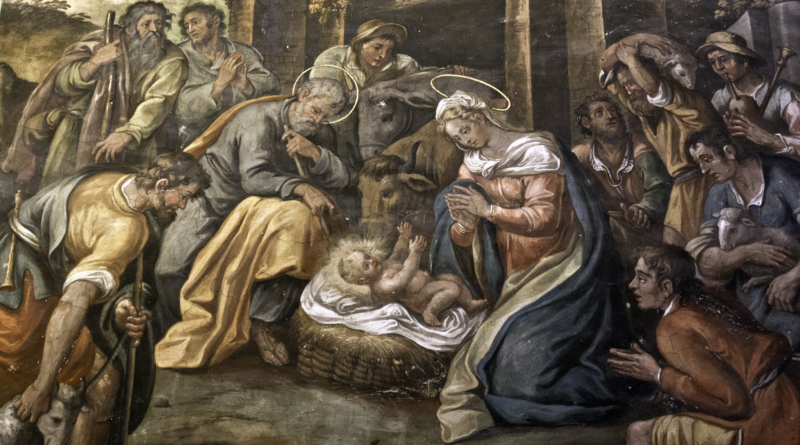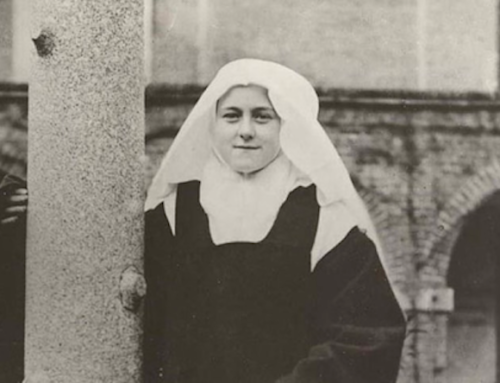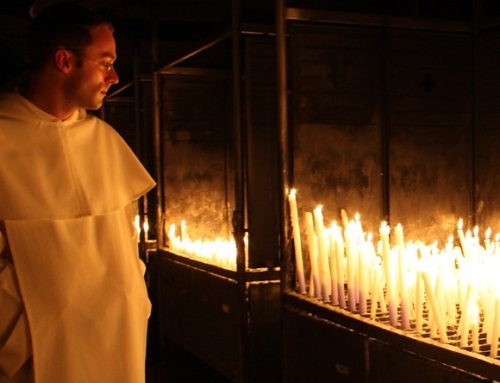Christmas re-focuses our attention on the Christ Child. At the crèche, our thoughts linger on the divine infant in the manger. We marvel that our almighty God became a tender baby to save us. Our hearts soften to make room for him, and we forget our selfish preoccupations. We adore Jesus with all of our affections; our souls are put at peace.
The single-mindedness of Christmas purifies our love for other people, especially the people we live with. When we gather as a Catholic family or religious community before the manger, we are moved to love those around us all the more. We see them in a different light, realizing anew that they belong to Jesus and that they are made to be happy with him forever. We rediscover, to our delight, that they too sincerely adore him. We are reminded that Jesus is healing and sanctifying the hearts of the people close to us, pouring upon them his light and his love, moving them to act supernaturally—realities we often miss when we focus on their (often trivial) shortcomings.
When we love our family members or religious brethren in a supernatural light, we are strengthened to bear with the small ways they might trouble us. Due to minor defects of character, as well as differences of upbringing and outlook, even virtuous people can irritate and disappoint us. As we kneel with our neighbors at the manger, the Christ Child draws our minds away from potential fodder for grumbling. He rids our hearts of the need to avenge every friction or annoyance. Instead, Jesus raises our thoughts and affections to himself, and he moves us to cherish the people we live with in light of his activity in their souls. He enables us to be more glad for their company, more receptive to their preferences, more patient with their limitations. Perhaps with greater frequency, he moves our neighbors to have more patience with us.
During the first Christmas season, the men who came to adore Jesus were a motley crew. Among those rustic shepherds and foreign stargazers, there were likely men who were clumsy or awkward in their speech or conduct. At a purely natural level, their peers and the Holy Family would have had valid reasons to grumble about them.
Yet we see no ill-will or discord in our nativity scenes, no petty resentment. As he lay in the manger, Jesus blessed his adorers with a share in the beatitude and fullness of charity that he possessed even as an infant. The child Jesus united them in a communion born not of their natural qualities but of his own happiness and love, which is not fazed by little shortcomings but bears them with mercy and peace.
After we put away the statues of the manger and the shepherds, Jesus continues to draw us to adore him alongside the people who are close enough to us to cause friction. As we kneel with our family or religious community before the Holy Eucharist, Jesus re-focuses our thoughts and affections on himself, truly present and adorable in the Blessed Sacrament. He fills our hearts with a share in his own love, and he moves us to love the people we live with in his light. He steadies us with his own patience and he heals our homes with his peace.
✠
Photo by Fr. Lawrence Lew, O.P. (used with permission)







